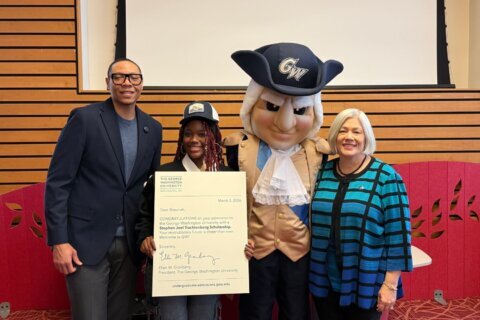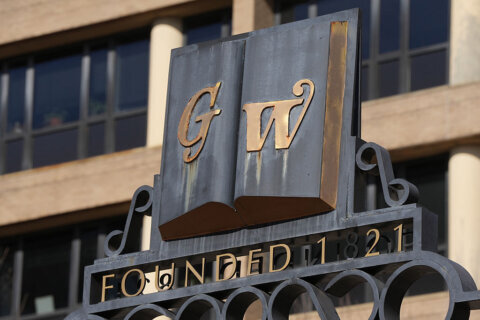The head of D.C.’s embattled Office of Unified Communications appeared before a D.C. council committee to talk about the struggles and frustrations that still persist, while still boasting the improvements her office has made.
But after hearing from the public, including safety advocates and call takers themselves, Heather McGaffin, the director of the city’s OUC, which handles 911 calls in the District, tried to put on a strong defense for one of the city’s most contentious industries.
“Last year, of the nearly 1.8 million 911 calls received, 77.86% were answered in 15 seconds or less,” said McGaffin, who also argued that’s the new industry standard these days. “In fact, the average number one answer time was 12.03 seconds.”
But the city’s own dashboard numbers say that still happened less than 80% of the time, and D.C. Council member Brooke Pinto, who led the oversight hearing, says simply getting a person to pick up is still a big concern.
“The most frequent concern I hear from residents about OUC … is around call times and repeated incidents where folks are telling us that they called and nobody answered at all,” said Pinto.
“And I understand from your performance oversight pre-questions that the percentage of 911 calls answered within 10 seconds was at 90.5% in fiscal year 2021. Then went down to 85.9% in fiscal year 2022, and then again went down in to 74.4% in fiscal year 2023, which is a very alarming trend. In your explanation, you stated, quote, ‘Performance around this KPI has continually improved and remained steady.’ But we’ve seen a drop from 90% to 74% over the last several years. So how do you square those two things?”
McGaffin said the city is working to improve hiring and making sure there’s enough personnel on hand to answer calls, and earlier in her comments even lauded an effort aimed at hiring more call takers right out of high school.
Pinto, as well as Council member Zachary Parker, also expressed frustration at the lack of answers when it comes to high-profile cases that have shone an ugly spotlight on the city’s 911 center. That included a flooding incident at the District Dogs pet center last fall, as well as the death of Bernard Baker Jr., whose family called 911 and couldn’t get anyone to pick up.
“We have a trust problem right now in the public with OUC,” Pinto said. “I think due in large part to a lack of transparency about the finalized analysis of these reports and investigations, not just a recognition that an error happened, but what was actually done about it.”
Parker expressed similar concerns.
“There’s a pattern of asking for information and then we don’t get it. And the [director] essentially says, ‘We’re not going to do that,’” Parker said. “So legally a District agency cannot respond with, ‘I’m not going to produce that information.’”
Even then, McGaffin was noncommittal about how quick she would respond with the information the council was requesting.
“We understand that there are issues and we’re working really hard to fix those issues. But 1.7 million times — more than any other state in the 50 states — people rely on the 911 services that we provide,” McGaffin said.
“And there are issues, and I’m not trying to minimize that in any way, but they’re far outweighed by the positive outcomes that we have. And so I don’t ever want there to be a trust issue between the public and the great work of the OUC employees,” she said.
Get breaking news and daily headlines delivered to your email inbox by signing up here.
© 2024 WTOP. All Rights Reserved. This website is not intended for users located within the European Economic Area.








